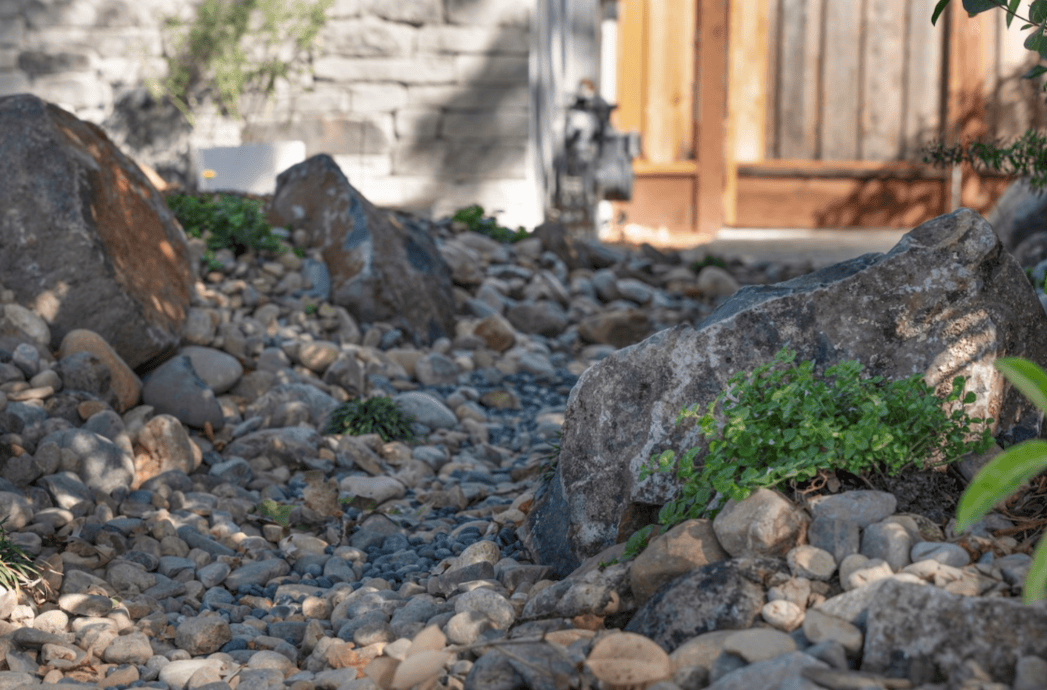Is the Winter Season Too Late to Install a French Drain?
As winter approaches, many homeowners put off outdoor projects, thinking it’s too late to tackle big landscaping tasks. However, when it comes to installing a French drain system, winter can be an excellent time to take action. A French drain is a simple yet effective drainage solution that helps prevent water buildup, soil erosion, and damage to your home’s foundation. Taking charge of your landscape construction Healdsburg in Winter is particularly important as winter rains can exacerbate drainage problems.
Benefits of Installing a French Drain in Winter
Installing a French drain system during the winter offers several advantages. Here are a few compelling reasons to consider this timing:
Soil is Easier to Work With
Although the ground may be colder, it is often easier to excavate and work with soil in winter than in the heat of summer. Summer heat can harden soil, making digging and trenching more labor-intensive. In contrast, winter soil is often softer and more pliable, making it easier to create the trench needed for your French drain system.
Prevent Winter Flooding and Water Damage
Winter brings increased moisture. Without proper drainage, this moisture can pool in your yard, leading to erosion, waterlogging, and even structural damage to your home’s foundation. By installing a French drain in winter, you’re taking proactive steps to prepare your property for rainy season, minimizing potential damage.
Prepare for Spring
Winter installation ensures your French drain is ready before spring arrives. As the spring rains begin, your landscape will be more prepared to handle excess water. This can prevent sudden flooding and give your landscape time to adjust to the new drainage pattern.
Protect Dormant Plants and Grass
Since most plants and grass are dormant during the winter, there’s less risk of damaging your landscape. Heavy equipment and excavation can be harder on lush, growing plants. But with dormancy, your landscape will likely suffer less disruption, and any disturbed areas will have time to recover by spring.
How Does a French Drain Work in Winter?
A French drain system is made of a trench filled with gravel or rock, with a perforated pipe at the bottom. This pipe collects water and directs it away from your property. In winter, the perforated pipe can effectively capture rainwater, channeling it away before it has a chance to accumulate and cause problems.
Insulation is Key
A key part of French drain installation is they are covered for insulation. Because the trench is covered, it’s also insulated from extreme cold, which helps to prevent the water within the drain from freezing. Even if there are temporary freezes, the drain system will still function as soon as the ice thaws.
Winter Installation Considerations
While there are many benefits to installing a French drain in winter, there are also some specific considerations to keep in mind:
Choose the Right Materials
Selecting the appropriate materials for winter installation is a crucial part of the essential questions to ask before hiring a landscaper. Whenever possible, opt for high-quality, durable pipes and gravel that can withstand cold temperatures. Additionally, using a non-woven geotextile fabric can prevent soil from clogging the pipe, which is essential for efficient drainage year-round.
Plan for Safety
Know what to expect during your landscaping installation. Winter conditions can be slippery and sometimes hazardous. Ensure that all pathways are clear and that the site is safe for workers. Proper safety gear, such as warm clothing, gloves, and non-slip boots, is essential for anyone involved in the installation.
How a French Drain Protects Your Property Long-Term
Beyond immediate winter benefits, a French drain system provides lasting protection for your landscape:
Foundation Protection
A French drain helps protect your home’s foundation by redirecting water away from the base of your house. This is especially crucial in winter, as fluctuating temperatures can cause water to freeze and expand, leading to cracks and other structural issues.
Prevention of Soil Erosion
Without proper drainage, water can erode the soil around your property. This can destabilize trees, shrubs, and even cause your lawn to become patchy. Installing a French drain prevents erosion by channeling water to a safer area, preserving the integrity of your landscape. This is also a part of the strength and significance of retaining walls.
Enhanced Lawn Health
Excess moisture can cause root rot and other issues for your lawn. A French drain helps maintain balanced soil moisture, promoting healthier grass and plant growth. With balanced drainage, your landscape will be more resilient against weather changes.
Tips for Maintaining Your French Drain System in Winter
Once installed, it’s essential to keep your French drain system in good condition. Here are some maintenance tips to keep it functioning optimally:
Keep Drains Clear of Debris
Remove leaves, twigs, and other debris from the surface of the drain area. This ensures that water can flow freely into the system.
Inspect for Signs of Blockages
Periodically check for signs of blockages in the pipe, such as standing water around the drain area. Promptly address any issues to prevent water from backing up.
Check After Heavy Rain
After significant rain, check that the drain is working as expected. If there are any issues, contact a professional for assistance.
French Drain Installations and more – DMG Landscaping
Protect your home and landscape this winter by installing a French drain system with DMG Landscaping. Our team of professionals has the experience and knowledge needed to tackle winter installations effectively. Contact DMG Landscaping today or give us a call at (707) 971-9547 to schedule a consultation and secure your landscape against winter’s toughest challenges.

